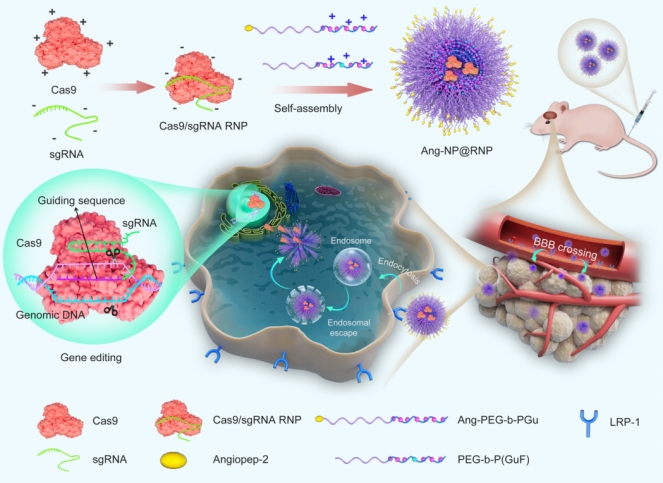Utilizing the high specificity and efficiency of CRISPR gene editing technology, the lab developed a new polymer nanocarrier, which can significantly improve the encapsulation and loading of Cas9 RNP components by modifying guanidine and fluoro groups. The prepared nanoparticles can cross blood-brain barriers (BBB) with ease, demonstrating superior blood circulation time, cellular uptake, and drug loading efficiency. Furthermore, they are biocompatible and efficiently edit oncogenic genes, ultimately inhibiting tumor growth. Thus, the polymer nanocarriers have a promising prospect in clinical translation for treating GBM.
The research paper was published in the Journal of Controlled Release 2022, 351, 739–751 (IF=11.467). A/Prof. Ruan, M.D. student Mingzhu Jiao and Ph.D. candidate Sen Xu are the first authors, and Prof. Shi, Prof. Zheng and Director Rongjun Qian from Henan Provincial People's Hospital are the co-corresponding authors.

Paper link: https://doi.org/10.1016/j.jconrel.2022.09.046



